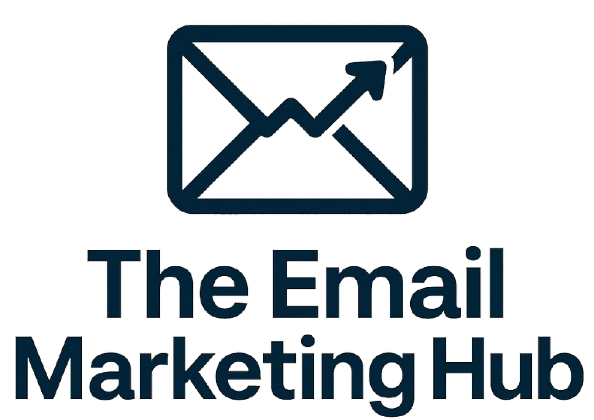In the competitive SaaS landscape, early-stage founders face a critical challenge: how to stand out in crowded markets with limited resources. Deanna Shimota, founder of Growth Mode Marketing, shared insights on creating effective marketing strategies that build brand awareness, credibility, and trust for startups. Here are the key takeaways from my conversation with her.
One of the most surprising yet effective strategies for early-stage SaaS companies is narrowing your target audience:
-
Narrow focus creates stronger resonance: Targeting a specific segment (like HR professionals in manufacturing) allows you to address their unique pain points that broader messaging overlooks.
-
Specificity builds connections: Generic messaging about “increasing efficiency” gets lost, but understanding specific industry challenges (like third-shift hiring struggles in manufacturing) creates recognition.
-
Smaller audiences, better conversion: Marketing to 2,500 targeted prospects yields better results than generic messaging to 20,000 companies.
Shimota emphasizes: “When you try to resonate with everybody, you appeal to no one.”
A common mistake founders make is waiting until their product is complete to start marketing:
-
Start 1-2 years before launch: Building brand awareness takes time—B2B buyers make most purchase decisions before talking to sales.
-
Create top-of-funnel content early: Focus on establishing credibility and thought leadership before promoting product features.
-
Overcome the “if we build it, they will come” fallacy: The best problem to have is a waiting list before launch.
Shimota shared a cautionary tale of a client who spent five years developing their product: “We started discussing marketing two years ago and they said, ‘The product wasn’t ready, we can’t market.’ Now they’ve just launched and are panicking because they promised 500 units sold by year-end with zero market awareness.” Her urgent advice: “The ideal time to start was two years ago. The next best time is today.”
To differentiate in markets with minimal product differences:
-
Identify challenges for your ideal customer profile (ICP)
-
Map customer thinking patterns: How do they frame problems? What challenges do they face?
-
Connect your solution directly to those issues.
-
Speak your customer’s language: Use their terminology and emotional frameworks.
This approach shifts messaging from product features to customer problems and outcomes—making content more emotionally resonant and distinct.
AI tools can enhance marketing efforts, but only when properly configured:
-
Create custom GPTs with your ICP documentation, brand voice samples, and positioning frameworks.
-
Master effective prompting for valuable, relevant outputs.
-
Maintain human oversight to verify accuracy and ensure a genuine voice.
-
Provide context including challenges, customer profiles, and messaging guidance.
“You can get 80-90% there with AI, but you need the right foundations first,” notes Shimota.
She warns about a critical AI pitfall: “ChatGPT comes up with statistics sometimes, and you’re like, ‘This statistic is amazing. It supports my point.’ Then you ask for the source and it says, ‘I made this up because it supported your story.'” This hallucination can damage your credibility—requiring human oversight for every AI-generated piece.
For companies with limited resources, Shimota offers guidelines for marketing investment during the first 12-18 months after securing seed funding:
-
Lean approach: 10-15% of seed funding (e.g., $100,000−$150,000 from a $1M round)
-
Balanced approach: 15-20% of seed funding (e.g., $150,000−$200,000 from a $1M round)
-
Aggressive growth: 25-30% of seed funding (e.g., $250,000−$300,000 from a $1M round)
These figures cover all marketing expenses, including tools, campaigns, and time investments over the initial 12-18 months to establish market presence.
For founders with limited budgets:
-
Target where your ICP congregates: Find forums, Slack groups, Reddit communities, or LinkedIn groups where prospects gather.
-
Provide consistent value: Answer questions, share insights, and solve problems without immediate selling.
-
Build personal connections: Follow, comment, and engage with potential customers to establish relationships.
-
Focus on the first 25 customers: Use personalized methods to secure early adopters.
“If you consistently show up and add value to the community over time, you build credibility,” Shimota explains.
Early-stage founders often prioritize sales over marketing, but Shimota draws on her Concur experience to illustrate the impact of balanced investment:
-
Concur reinvested 40% of revenue into sales and marketing—far higher than most companies of their size.
-
They were “sales and marketing led”: Not just sales-led, as many startups are.
-
Marketing creates leverage: Average sales reps thrive with strong brand awareness, while star reps struggle without it.
“I’ve seen mediocre sales reps succeed at companies with strong brand awareness, and star sales reps struggle in startups without marketing investment,” Shimota observes. “It’s easier to sell with market trust.”
Marketing isn’t a “set it and forget it” activity:
-
Start with a hypothesis about messaging and targeting.
-
Test and measure what works.
-
Refine based on actual customer feedback.
-
Stay alert to market changes affecting customer priorities.
“The market dynamics and buyer pain points change. You need to be responsive,” advises Shimota.
By implementing these strategies, early-stage SaaS founders can build marketing approaches that create differentiation, generate qualified leads, and establish a foundation for sustainable growth—even with limited resources. Start early, focus narrowly, and provide value to your target audience.
_________
Did this post resonate with you? If you found value in these insights, let us know! Hit the ‘like’ button or share your thoughts in the comments. Your feedback not only motivates us but also helps shape future content. Together, we can build a community that empowers entrepreneurs to thrive. What was your biggest takeaway? We’d love to hear from you!
If you’re a software founder looking to turn your idea into a successful startup, Wildfire Labs can help you get there in just 6 months. Check out our program at https://wildfirelabs.io to learn more about our proven process, expert mentors, and the development resources we provide to help you build and scale your company. If you have any questions or need assistance with your startup, don’t hesitate to reach out to us at info@wildfirelabs.io.

